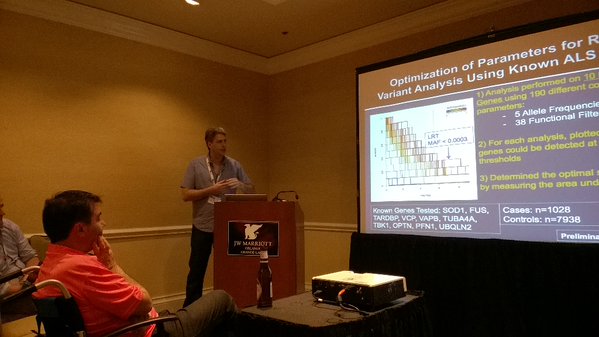 Often, the first step to solving a problem is understanding it. In an effort to gain greater insight into the biological malfunctions that lead to ALS, researchers in Europe and the US have launched a new collaboration that will bring together partial DNA profiles for 28,000 people.
Often, the first step to solving a problem is understanding it. In an effort to gain greater insight into the biological malfunctions that lead to ALS, researchers in Europe and the US have launched a new collaboration that will bring together partial DNA profiles for 28,000 people.
The study is being designed to focus on rare mutations that disrupt protein coding DNA. Such mutations often confer a very striking biological impact, and can prove especially informative towards establishing new targets for drug development. Researchers will compare the profiles of 8,000 ALS patients to 20,000 people unaffected by ALS. This comparison will help distinguish ALS causing mutations from considerably more prevalent bystander mutations that occur even in healthy people.
The project, which is being led by scientists at the University Medical Center Utrecht and the University of Massachusetts medical school, constitutes a significant extension on previous joint ventures between project MinE and other ALS research groups. It is hoped that the new study will help explain disease onset in a greater number of patients and that findings will aid efforts to design new treatments.

